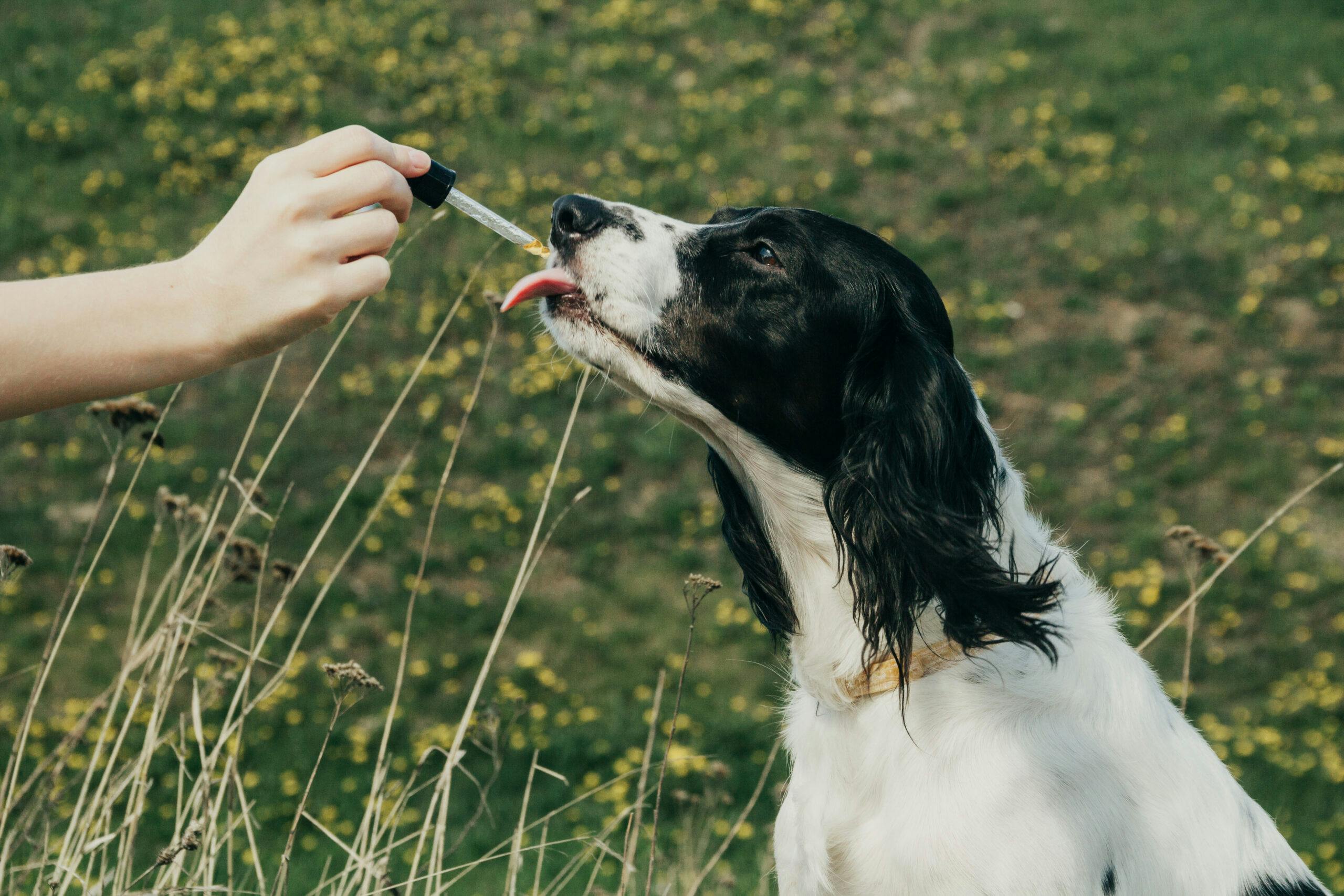
Medical cannabis became more legal for pets in California but what our we are doing for our furry Canadian friends?
Canadian veterinarians can’t prescribe medical cannabis products for any kind of animal, and there aren’t any legal CBD options for sale either. But that isn’t stopping pet parents from giving cannabis to their furry loved ones.
Pet owners are still getting CBD animal items from the illicit market or using legally obtained cannabis products intended for humans.
Celebrity endorsements normalize this wellness trend of pot for pets. Products like Martha Stewart’s pet line, designed with her dogs’ health in mind, are only for sale in the US but it plants an international seed saying, “CBD helps pet health”.
As pet owners start experimenting with the potential therapeutic effects of CBD and cannabis themselves, it’s natural to wonder if those benefits could be shared with their animals. Vets in Canada are increasingly being asked about CBD and if it is helpful for treating medical issues in pets.
The short answer is maybe, and the long answer is that medicating animals with cannabis is more complicated than it is for humans, especially legally.
Vets are vague and cautious about cannabis and pets
When cannabis was legalized in Canada, pet healthcare was not included in the Cannabis Act. There was a rallying of support in 2019 for this to change, but in the interim pet owners and veterinarians are left in a legal grey area.
“The problem in Canada is there is no legislative body regulating these products. Many of these companies are making medical-based claims that are totally unsubstantiated,” says Dr. Ian Sandler, CEO of Grey Wolf Animal Health in Toronto.
“What is also frustrating for Canadian veterinarians is that we can discuss the potential use of CBD to pet owners,” Dr. Sandler says, “but because we are unable to authorize the use of medical cannabis-based products, pet parents head to dispensaries to purchase human-focused products for their pets.”
“It is very difficult to obtain a quality of assurance document on the recreational side unlike the medical vertical,” says Dr. Sandler.
Often, owners are getting unregulated CBD pet products and are unaware that they are not legally sourced. Without the required government testing, illicit cannabis products can have pesticides, heavy metals, and other contaminants dangerous to pets.
Pet owners should discuss with veterinarians if cannabis is the ideal solution for their furry friend, especially if they never researched how CBD, THC, or other cannabinoids may affect their pet, says Dr. Scott Bainbridge, owner of the Dundas West Animal Hospital in Toronto.
“And more often than not, I’ve seen the best effects of cannabis for pets working in concert with other medication, such as anti-inflammatory and anti-anxiety effects,” he adds.
TLC for your pets with CBD and THC?
A 2019 survey of Canadian dog owners found that the most common use of canine cannabis products was for pain relief (72.3%). Followed by reduction of inflammation (47%) and relief from anxiety (40%).
But what does the science say?
“The science is beginning to show that cannabis is safe for your pets,” says Dr. Trina Hazzah, president of the Veterinary Cannabis Society in L.A. a veterinarian specializing in integrative oncology.
As expected, CBD receives the lion’s share of veterinary attention when pet owners inquire about medical interventions for their pets. Dr. Hazzah says most research has listed common cannabis responsive conditions for pets. This includes such things as osteoarthritis, anxiety, seizures, inflammatory issues, cancer, and palliative care.
![Funny concept photo of a dog smoking a legal medical marijuana cigarette]() Doobs for dogs? Absolutely not. Responsible pet owners aren’t trying to get their animals stoned. Just as medical cannabis benefits people, it could potentially help pets.
Doobs for dogs? Absolutely not. Responsible pet owners aren’t trying to get their animals stoned. Just as medical cannabis benefits people, it could potentially help pets.
“There have been at least 10 studies on the safety and pharmacological dynamics on the way drug works on the animal body. As well as the safety of CBD products, along with some studies incorporating large amounts of THC.”
A recent report found that cannabis may reduce aggressive behaviour in dogs. While another study from 2018 revealed how CBD can reduce a dog’s pain sores compared to a placebo.
Also making headlines recently is this 2021 report on dogs with cancer. It concluded that “CBD oil caused a significant decrease in cancer cell reproduction in all cell lines studied.”
Dogs reportedly boast a higher density of CB1 receptors in the brain compared to any other species, including humans. That means they can tolerate higher doses of cannabis oil compared to, say, cats.
THC can be hazardous to any pet if they ingest too much of the buzzy cannabinoid. One study noted how “CBD-predominant oil formulation was safer and more tolerated in dogs. Versus oil formulations containing higher concentrations of THC.” Bringing up the most common delivery method of giving CBD to pets.
What if my pet gets too stoned?
A common concern for pet owners is the side effect of too much CBD and THC. Dr. Hazzah notes that diarrhea is a more common symptom with hemp-derived CBD. Perhaps due to the hemp fibres or oil in the tincture.
The general advice for pet owners, is to start low and go slow, says Dr. Hazzah. This allows pet owners to generally avoid the pitfalls that could come from cannabis intoxication.
Oils are easier for animals to ingest, Dr. Hazzah says, and they allow for pet owners to better manage dosage. Canna-curious pet parents should ensure their human-focused products, especially edibles, are far from a pet’s reach, as several incidents have led to dogs falling ill from snacking on weed gummies or cookies.
Despite the challenges blocking an easy path for cannabis access, pet owners should be encouraged. Research is now more focused on the cannabis-animal relationship.
Until Next Time…




 Doobs for dogs? Absolutely not. Responsible pet owners aren’t trying to get their animals stoned. Just as medical cannabis benefits people, it could potentially help pets.
Doobs for dogs? Absolutely not. Responsible pet owners aren’t trying to get their animals stoned. Just as medical cannabis benefits people, it could potentially help pets.